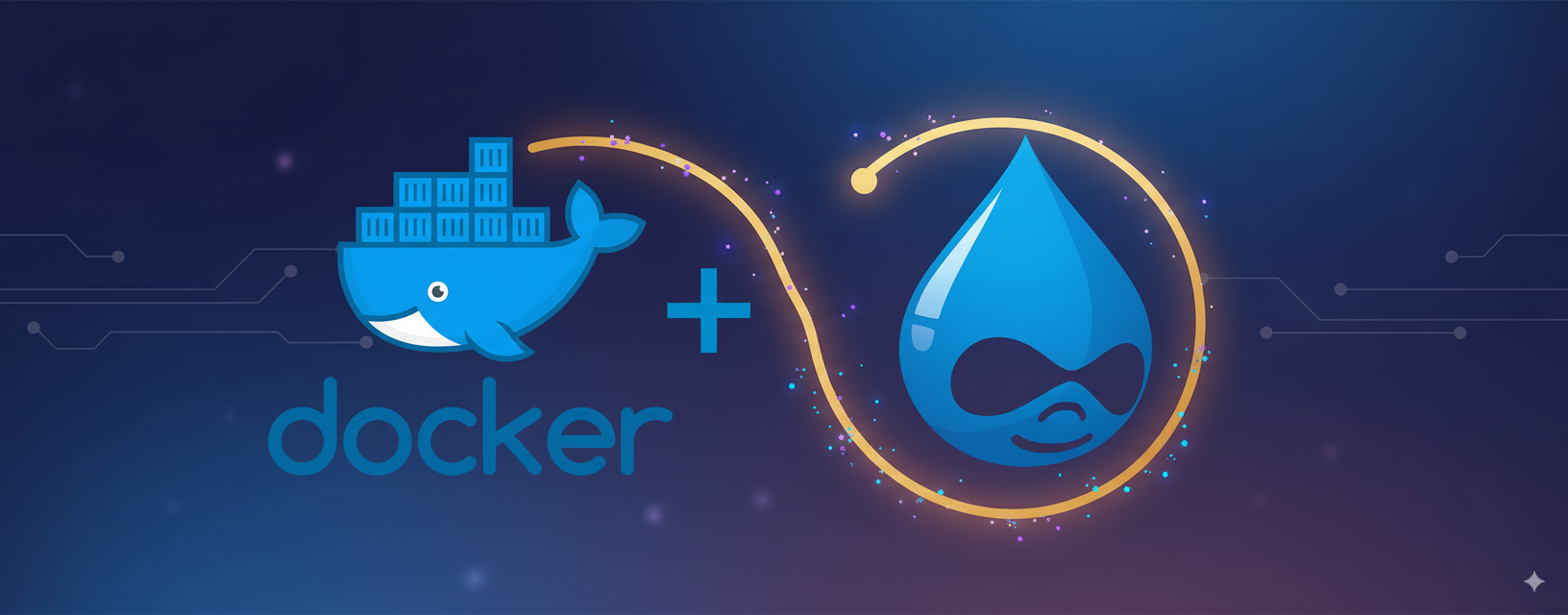Docker lets you run your website inside isolated containers that already have everything you need—web server, database, caching, and more. Instead of installing everything directly on your computer, you run these services through Docker, keeping your local machine clean and avoiding those “works on my machine” problems.
If you’ve ever set up a local environment for a Drupal site, you probably know it can get messy. Installing PHP, MySQL, and Apache or Nginx, making sure they all match your production server, and then fixing version mismatches can be frustrating. That’s where Docker steps in and makes things a lot easier.
Docker lets you run your website inside isolated containers that already have everything you need—web server, database, caching, and more. Instead of installing everything directly on your computer, you run these services through Docker, keeping your local machine clean and avoiding those “works on my machine” problems.
Why Use Docker for Drupal?
- 1. Consistency – With Docker, every developer uses the same setup. Whether you’re on Mac, Windows, or Linux, the container behaves the same way. That means fewer surprises when moving code from local to staging or production.
- 2. Quick setup – Spinning up a Drupal-ready environment takes minutes. You don’t need to manually install PHP extensions or configure MySQL users. Everything is defined in configuration files and ready to run.
- 3. Multiple projects – If you’re working on multiple Drupal sites, Docker helps you keep each project isolated. One site can run PHP 8.1, while another uses PHP 8.3, without conflicts.
- 4. Easy resets – Broke your local site while testing? Just rebuild your container, and it’s back to a clean state. No need to reinstall everything.
Common Tools
There are several tools built on Docker that make running Drupal smoother:
- • DDEV – Very popular among Drupal developers. It handles most configurations out of the box and works with Composer, Drush, and other common tools.
- • Lando – Another favorite for local development. It provides flexible recipes for Drupal, WordPress, Laravel, and more.
- • Docker Compose – If you want more control, you can write your own
docker-compose.ymlfile with services like PHP, MySQL, and Nginx.
If you’re new to Docker, the first step is installing Docker Desktop on your machine. After that, you can try out DDEV or Lando since they simplify the process. Usually, it’s just a matter of running a couple of commands like ddev start or lando start, and you’ll have a working Drupal site running locally.
Using Docker for Drupal development saves a lot of time and frustration. Instead of fighting with local setups, you focus more on building features and writing code. Once you get used to containers, you’ll wonder how you managed without them.

